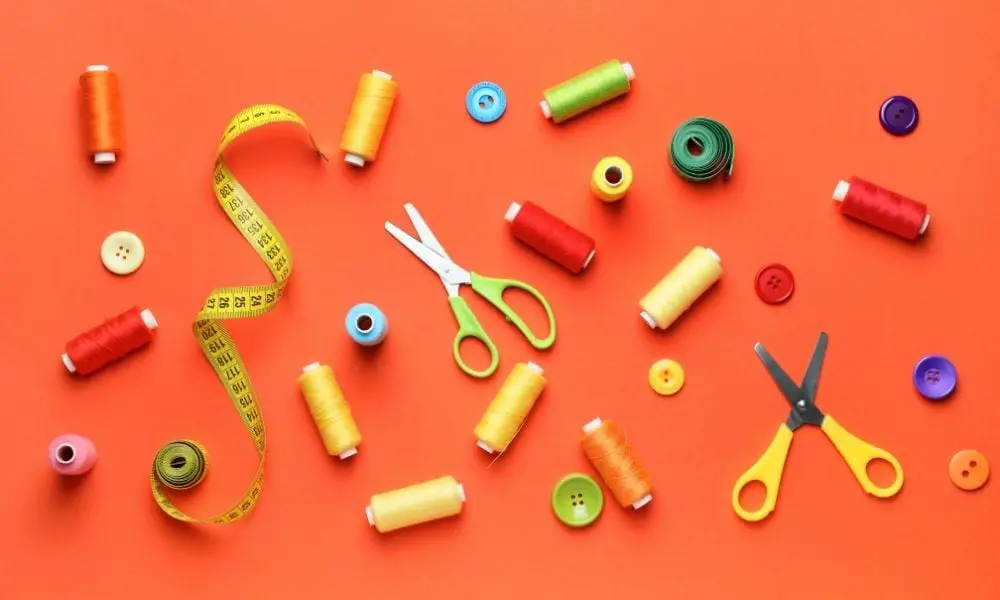

When it comes to making clothes, there are a few universal tools. While the essential tools of garment making have similarities to many craft supplies, there are a few specialty tools used in garment crafting. Before starting any project, make sure you are stocked up on everything you need, plus a few new or unfamiliar tools to try out.
Rulers of this type are typically lightweight metal or plastic and come in a variety of sizes. Besides functioning as a measuring tool, these handy items also feature a gauge. The gauge is at the center of the rule and can be set to a point on the ruler as a reference to ensure stitches and cuts are consistent.
One of the stranger-looking tools in garment making, the seam ripper is a tiny blade. Typically, there are two leading edges; one is a point like a cross-stitch needle, while the other shorter point is rounded off. Between the two points is a very sharp curved edge, and as the name suggests this tool is inserted into exposed stitches to cut the threads.
Pins are used to holding multiple pieces of material together while being sewn. The sewing can be done by hand or with a machine, after which the pins are removed. Rather than risking being poked every time you reach into a tin of pins, most crafters prefer to stick the pointy end into a stiff cushion for quick retrieval.
Finally, an item for marking cut and stitch lines is extremely important. Garment making is a precise art with not a lot of room for error. Don’t be afraid to measure and then remeasure before marking your lines. Typically, fabric chalk works best on dark clothing, whereas a water-soluble marker is more visible on lighter colors.
One of the more unusual specialty tools used in garment crafting is beeswax. Crafters interested in trying this tool will find small tins available at most any specialty cloth supply store. The purpose of applying beeswax to the thread is to reduce the chances of snarls and knots appearing as the thread is drawn through each stitch.
Of all the items that specifically pertain to the art of sewing, none are so iconic as the humble thimble. Tools to protect fingertips from wayward needles have been a part of sewing since 1695. Traditionally made of iron, steel, or brass, thimbles now come in a wide array of finger sizes and materials. Many people collect these unusual and sometimes elegantly decorative tools.
Additional Resources:
Anna Kanyuk
Kristen Hancher
Lizzo
Serena Williams
Billie Eilish
Find out when to upgrade your industrial storage solutions to improve efficiency, boost safety, cut…
Disposable e-cigarettes are redefining how nicotine is consumed—and they're doing so with growing support from…
For smokers seeking a healthier way to enjoy nicotine, innovation has brought forward one of…
Discover the incredible teamwork of bees and how their collaboration sustains ecosystems. Learn how we…
A night out at a top-notch bar with an incredible view can be an unforgettable…
Learn the critical safety features every go-kart track needs. From barriers to emergency solutions, these…